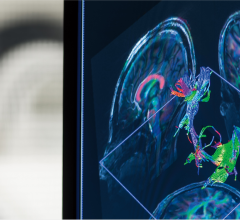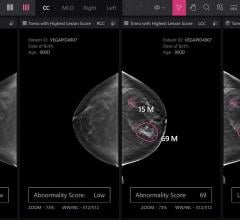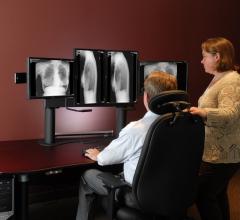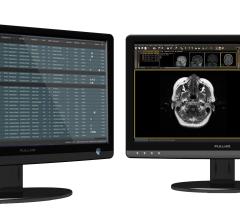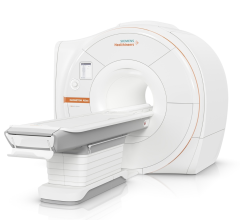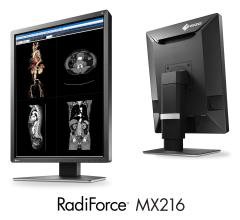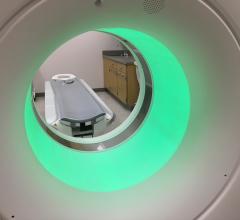November 13, 2019 – Mindray announced its partnership with Cincinnati Children's Hospital Medical Center, one of the top ...
November 13, 2019 – Alpha Source Group (ASG) recently expanded its product offerings and geographic footprint to be ...
November 13, 2019 – MaxQ AI announced a new partnership agreement with Arterys, a web-based, AI-powered medical image ...
Radiology departments have many different needs and face a wide variety of challenges that can impact their departments ...
November 13, 2019 – Hologic, Inc. announced that the U.S. Food and Drug Administration (FDA) has approved 3DQuorum ...
November 13, 2019 — Members of Congress from both sides of the aisle issued a series of oversight letters to the Centers ...
November 13, 2019 — Increased immune system activity along the surface of the brain, or meningeal inflammation, may be ...
Despite decades of progress in breast imaging, one challenge continues to test even the most skilled radiologists ...
November 13, 2019 — Experiments at the Department of Energy's Lawrence Berkeley National Laboratory (Berkeley Lab) are ...
November 12, 2019 — Medical Imaging developer PaxeraHealth will showcase the latest version of its AI-based enterprise ...
November 12, 2019 — RedRick Technologies, a provider of purpose-built ergonomic workstations for professionals, monitor ...
Bayer Radiology’s Barbara Ruhland and Thom Kinst discuss how radiology departments can address the many different ...
November 12, 2019 — Intelerad Medical Systems, a leader in enterprise imaging workflow solutions, today announced that ...
November 12, 2019 — Geisinger has partnered with Life Image, a global network for sharing clinical and imaging data, to ...
November 12, 2019 — Northern Arizona Radiology in Flagstaff, Ariz., recently became the first healthcare facility in the ...
eHealth Saskatchewan plays a vital role in providing IT services to patients, health care providers, and partners such ...
November 12, 2019 — Lunit, a leading medical AI software company devoted to providing AI-powered total cancer care, will ...
November 11, 2019 — ECG Management Consultants, a leading U.S. healthcare advisory firm, is now part of the global ...
November 11, 2019 — Radiographer Apollo Exconde, a magnetic resonance imaging (MRI) radiographer with a special interest ...
November 8, 2019 — Laurel Bridge Software announces the new Laurel Bridge AI Workflow Suite that enhances the ability of ...
November 8, 2019 — EIZO Inc. announced the United States release of the RadiForce MX216, a 21.3-inch 2 megapixel color ...
Embedded in the many data sets that comprise it, Big Data may provide an understanding of how health care can be ...
November 8, 2019 — The global computed tomography (CT) scanner device and equipment market was valued at about $6.9 ...
November 8, 2019 — Using ground-breaking technology, researchers at the University of Maryland, Baltimore County (UMBC) ...


 November 13, 2019
November 13, 2019 




